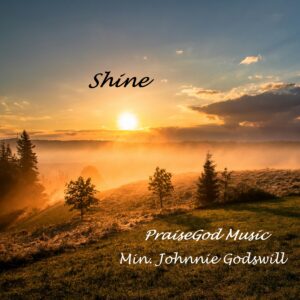

Too many times over the past 18 months, the Charleston music community has felt the overwhelming pain of loss after the deaths of beloved members of the local scene who struggled with mental illness. Radio DJ Richard “Box” Bachschmidt’s death in Mt. Pleasant last June renewed a public discussion about suicide. After getting clean and staying sober for years while also struggling with depression, bassist Chris Lewey lost his life in a brief relapse. Drew Gardner’s death last month affected anyone who witnessed his earnest hard work on creative projects.
In the music community, we did what we’re trained to do in these situations: We said our goodbyes, wrote our tributes, and pushed on without enough discussion on the larger implications.
The correlation has been difficult to confirm, but studies do suggest that artists, performers, actors, musicians, or any creatives are more prone to depression and anxiety. And resources aimed specifically at creative industry professionals attempting to cope with mental health challenges are incredibly scarce.
Bill Harrison, a musician and psychotherapist at the Claret Center in Chicago, is one of the few therapists who advocates for artist-centric therapy.
“The nature of the performance professions correlate highly with anxiety issues and depression issues,” Harrison told the City Paper. “Those mood disorders are not under the exclusive domain of artists, but they do show up frequently and I think there are reasons for it. Trying to make a living in those professions is particularly difficult. There’s no career path that you might have in business, in sales, in the corporate world.”
As Harrison notes, there are resources for athletes struggling with mental health. We know about the psychological imapcts of repeated physical trauma on professional athletes. Organizations like the NCAA have begun to make strides in mental health awareness for athletes.
The same goes for the veteran community. We know about post traumatic stress disorder and suicide among soldiers, and national efforts have focused on providing resources for them to cope. This goes beyond the Deptartment of Veterans Affairs, with third-party organizations like the Wounded Warrior Project advocating for mental health care among vets.
So, given the rising evidence suggesting a correlation between creativity and depression, why have we not attempted to create the same resources for the music community?
Maybe we can blame the tortured artist stereotype. Maybe we can blame our forerunners in the press.
Music media has consistently romanticized artists suffering from depression without drawing a distinction between their work and their life. Unknown Pleasures, Either/Or, Pink Moon, In Utero — each of these classic albums is tied to their creators’ chaotic mental states. As critics and journalists, many of us are quick to compliment them.
What we have never stopped to consider was whether we have encouraged artists to be depressed or not share their emotions in an honest way outside of music. We forgot (or never thought) to say something more important than a positive statement in an album review: We may love your talent, but we love you more. Art and life do not need to parallel each other for both to be great. Creativity and depression are not mutually exclusive.
A comprehensive database of therapists that cater to artists may not exist, but we can demand that unions like the American Federation of Musicians begin speaking out. We can ask medical professionals to study correlations between creative fields and depression, and we can ask local therapists to delve into the subject when seeing clients active in the art scene.
And even without a database that directs artists to mental health resources made exclusively for them, there’s always hope.
Psychologytoday.com has an extensive list of registered therapists and psychiatrists all around the country and in our area. The Charleston-Dorchester Mental Health Center provides service regardless of your ability to pay, and MUSC offers a financial assistance plan. The Suicide Hotline is open 24 hours a day, seven days a week and can be reached at 1-800-273-8255.
Most importantly, you can look out for each other. If a friend seems to be going through a hard time, tell them that you love them, ask them how they are, and listen to them. You might just save a life.





